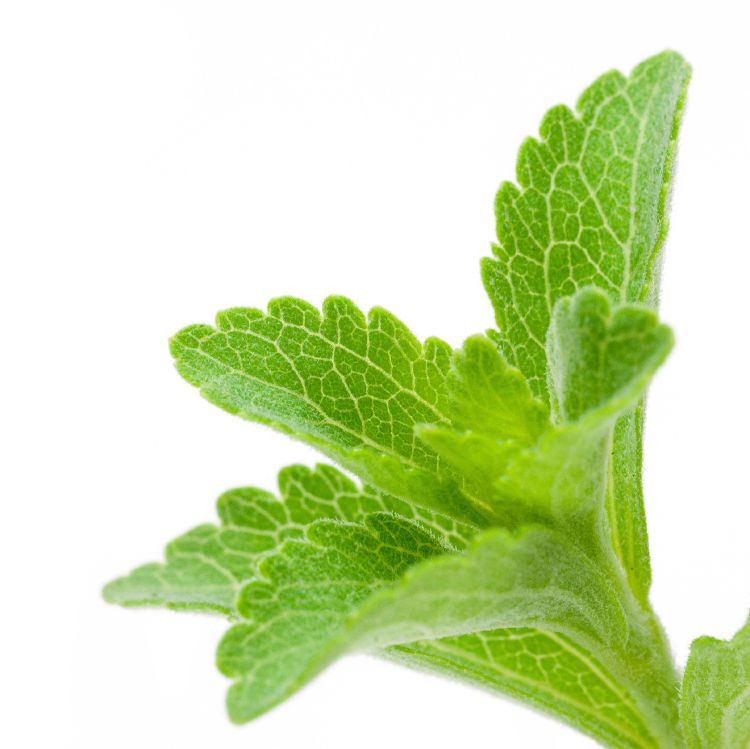Stevia has no significant effects on gut microbiome, according to recent study
While some research points to potential negative impacts non-nutritive sweeteners may have on the gut microbiome, this recent study funded by Cargill shows that its branded EverSweet stevia had no significant impact on the microbiome when compared to sucrose.
Photo © iStockphoto.com/ olm26250

A recent study1 funded by Cargill (Minneapolis, MN) found that stevia consumption did not negatively impact the human gut microbiome. In the randomized, double-blinded, parallel-design study 59 healthy adults consumed a 16 fluid ounce beverage containing either 25% of the acceptable daily intake (ADI) of stevia or 30 g of sucrose daily for 4 weeks followed by a 4-week washout. The beverage sweetened with stevia contained 620 ppm steviol glycosides (equivalent to 75.6 mg steviol), while the comparative product was sweetened with 30 g of sucrose. The stevia sweetener used was a mixture of 95% steviol glycosides (largely rebaudiosides M and D) produced via yeast fermentation, called EverSweet, produced by Cargill, Inc.
At baseline, four weeks, and eight weeks researchers measured the gut microbiome using shotgun sequencing DNA analysis and fecal short chain fatty acid (SCFA) concentrations via ultra-high performance liquid chromatography-tandem mass spectrometry. They also took anthropometric measurements, including fasting serum glucose, insulin and lipids, blood pressure, and pulse. Results showed that there were no significant differences in population of the gut microbiome, fecal SCFAs, or any anthropometric and cardiometabolic measures between the stevia and sucrose group.
According to the researchers there are some studies that have raised concerns about the potential adverse effects of non-nutritive sweeteners such as stevia on the gut microbiome. There is however a wide variety of stevia ingredients on the market, and therefore, it can be difficult to draw conclusions about the impacts of stevia more broadly when different studies may be utilizing different steviol glycosides ingredients for example
Alyssa Leyva, product line manager for Cargill’s high intensity sweetener division, say that this study was an opportunity to contribute to the body of research as it applies to a specific product. “We saw a gap in that in that research in terms of the knowledge around pure steviol glycosides, which is why we had decided to go ahead and investigate,” said Leyva. “Certainly, there's been a lot of studies historically validating the safety of stevia, but [Cargill] really wanting to take that research to the next level.”
While the goal of this current research is to further establish the safety of stevia when consumed at high levels, other research points to potential benefits to the gut microbiome from high intensity sweeteners such as stevia, such as recent ex-vivo research.
Reference
- Kwok, D.; Scott, C.; Stom, N.; Au-Yeung, F.; Lam, C.; Chakrabarti, A.; Hutton, T.; Wolever, T.W.S.; Comparison of a daily steviol glycoside beverage compared with a sucrose beverage for four weeks on gut microbiome in healthy adults. The Journal of Nutrition, Article ASAP. DOI: 10.1016/j.tjnut.2024.01.032 (accessed 2024-03-29).
Prinova acquires Aplinova to further increase its footprint in Latin America
April 7th 2025Prinova has recently announced the acquisition of Brazilian ingredients distributor Aplinova, which is a provider of specialty ingredients for a range of market segments that include food, beverage, supplements, and personal care.
HHS announces restructuring plans to consolidate divisions and downsize workforce
Published: March 27th 2025 | Updated: March 27th 2025According to the announcement, the restructuring will save taxpayers $1.8 billion per year by reducing the workforce by 10,000 full-time employees and consolidating the department’s 28 divisions into 15 new divisions.








